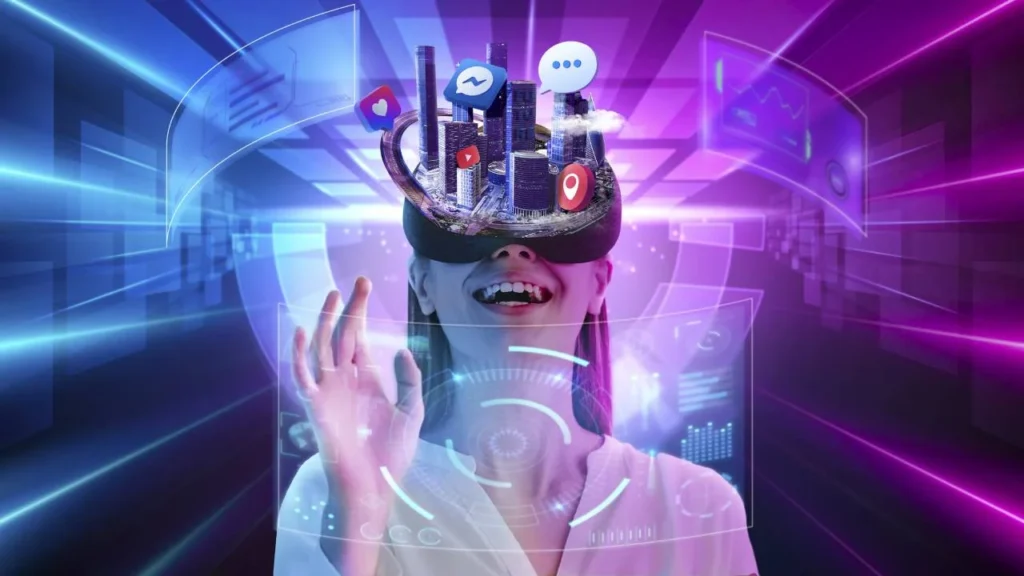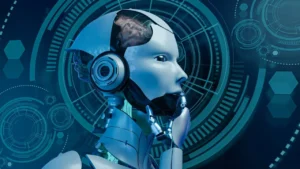
Will AI Replace Humans by 2025? Exploring the Future of Work and Automation
Will AI Replace Humans by 2025? Exploring the Future of Work and Automation Artificial intelligence
The world as we know it is changing due to artificial intelligence (AI), which is no longer a sci-fi idea. AI is transforming sectors and changing how we live, work, and interact in a variety of fields, including healthcare, finance, education, and entertainment. AI is one of the trendiest subjects in technology in 2024 because of its more revolutionary developments. This article will examine the most recent developments, uses, and moral dilemmas surrounding artificial intelligence, as well as how this technology is expected to influence the future.
AI is transforming healthcare by offering faster diagnostics, tailored treatments, and better patient outcomes. Machine learning algorithms can examine large amounts of medical data to discover diseases like cancer in its early stages. For example, AI-powered systems can now detect patterns in medical images that even the most skilled doctors may overlook. Furthermore, AI-powered chatbots and virtual assistants provide 24-hour support to patients, decreasing the pressure on healthcare workers.

The financial industry is using AI to improve decision-making, detect fraud, and automate procedures. Robo-advisors use artificial intelligence to deliver individualized financial advice, while predictive analytics helps banks better identify credit risks. AI is also playing an important role in fraud detection by spotting anomalous trends in transactions in real time. In 2024, we’ll witness an increase in AI-powered fintech solutions that make financial services more accessible and efficient.

AI is revolutionizing the educational landscape. By customizing instructional materials to meet the needs of each student, adaptive learning systems are guaranteeing a more individualized educational experience. Teachers are also benefiting from AI-powered solutions that automate administrative duties like attendance monitoring and grading. Furthermore, by removing barriers related to language and geography, virtual tutors and language learning applications are expanding access to education for people all over the world.

AI is being used by the entertainment sector to produce more individualized and immersive experiences. AI algorithms are being used by streaming services like Netflix and Spotify to suggest material to users based on their interests. AI is being utilized in the gaming industry to provide more dynamic plots and realistic characters. AI is pushing the limits of creativity in filmmaking by helping with special effects, editing, and scriptwriting.

Even while there is no denying AI’s advantages, it is imperative to address the ethical issues it raises. The AI discussion is centered on concerns like algorithmic bias, data privacy, and employment displacement. The creation of moral AI frameworks that guarantee responsibility, equity, and transparency is becoming more and more important in 2024. Organizations and governments are collaborating to design rules that encourage the development and application of AI responsibly.

The possibilities of AI appear to be endless as we move forward. AI is poised to reach new heights thanks to emerging technologies like neuromorphic engineering and quantum computing. AI is predicted to be essential in tackling global issues including energy efficiency, food security, and climate change. AI’s influence will be further amplified by its integration with other technologies, such as IoT, blockchain, and 5G, making the world smarter and more connected.

Artificial intelligence is a paradigm change that is changing every part of our life, not merely a technical development. AI is spurring innovation and opening up previously unthinkable possibilities in fields like healthcare and entertainment. But as we welcome this AI-driven future, it’s critical to manage the moral dilemmas and guarantee that everyone can benefit from AI. AI has a promising future, and 2024 is only the start of this fascinating adventure.
Artificial Intelligence (AI) refers to the simulation of human intelligence in machines that are programmed to think, learn, and make decisions. AI systems use algorithms and data to analyze patterns, make predictions, and perform tasks that typically require human intelligence, such as recognizing speech, identifying images, or solving complex problems.
AI is revolutionizing healthcare by enabling faster and more accurate diagnoses, personalized treatment plans, and improved patient care. Applications include AI-powered medical imaging, virtual health assistants, predictive analytics for disease prevention, and drug discovery.
Ethical concerns about AI include issues like data privacy, algorithmic bias, job displacement, and the potential misuse of AI technologies. Ensuring transparency, fairness, and accountability in AI systems is critical to addressing these challenges and promoting responsible AI development.
While AI has the potential to automate repetitive and routine tasks, it is unlikely to replace jobs entirely. Instead, AI is expected to augment human capabilities, creating new roles and opportunities. However, reskilling and upskilling the workforce will be essential to adapt to the changing job landscape.
The future of AI is incredibly promising, with advancements in areas like quantum computing, natural language processing, and robotics. AI is expected to play a key role in solving global challenges, such as climate change, food security, and energy efficiency, while continuing to transform industries and improve everyday life.

Will AI Replace Humans by 2025? Exploring the Future of Work and Automation Artificial intelligence

The Ultimate Guide to Responsive Web Design in 2025 Having a website that looks fantastic

How Artificial Intelligence is Transforming Industries in 2025 Introduction The world as we know it
Copyright © 2025 connectHamza | All Rights Reserved
Online • Ready to help